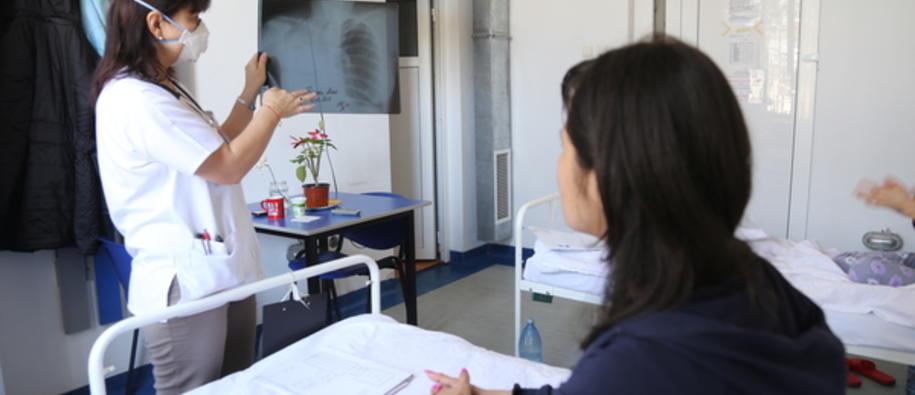Tuberculosis (TB) is back and nastier than ever. According to World Health Organisation (WHO), antibiotic-resistant TB is a major public health problem that threatens the progress made in TB care and control worldwide.
Romania has the highest number of people suffering from TB in the EU. Around 12 000 people are diagnosed with TB each year, of whom 500 were diagnosed with multi-drug resistant tuberculosis (MRD-TB). MRD-TB is potentially deadly and cannot be treated with common antibiotics. The treatment is long and often painful. Patients need at least three months in hospital and two years of medication.
“First I thought it was just the flu. But it wasn’t. I was diagnosed with multi-drug resistant tuberculosis five weeks ago. I am given 15 pills and one injection every day. The worst thing is that I have to follow this treatment for two years,” says a patient at the Marius Nasta Institute in Bucharest, a hospital specialised in treating patients with MRD-TB.
No easy cure
The harsh cure could be the reason why many TB-infected patients give up and stop taking their medicine.
“It is a nasty type of tuberculosis. The side effects of the drugs for some patients include severe dizziness, nausea, vomiting and sometimes even loss of hearing,” explains Christina Popa, a doctor at the Marius Nasta Institute.
“A person with tuberculosis can spread the disease even without being aware of being sick. It is important for us to find those who are infected at an early stage. 500 Romanians are diagnosed with MRD-TB every year, even though the WHO estimates that we should have diagnosed up to 1500”, says Doctor Silvia Asandi, Director of the Romanian Angel Appeal Foundation, a non-governmental organisation that provides aid to people with TB and HIV/AIDS.
Saving thousands of lives
The treatment is expensive and Romania needs help in eradicating the disease. This is why Norway provides €9,588,830 to this project.
“This contribution is an extraordinary thing for Romania. About 10 000 persons will be tested and 1 000 patients will be treated thanks to the Norwegian project. This could be considered an important step towards eradication of tuberculosis in Romania, as well as in the European Union,” says Doctor Asandi.
Patients are treated at Marius Nasta Institute with the support from Norway Grants. The hospital has 48 beds for TB-patients.
“This is about saving lives. TB is a lethal illness if not treated. Many Romanians cannot afford the expensive treatment, but patients supported by the project get the treatment for free," says Doctor Popa.
Irina has been in hospital for five weeks and will not be discharged for at least three months. She must take the strong medication for two years. Nevertheless, the IT-worker and artist from Bucharest, refuses to lose her spirit and hope. She focuses on getting better and on planning her life after the treatment:
“The people I miss most are my mother and my fiancée. But after the treatment I will paint more, get to know more people and do positive things. I want to live my life exactly as I should.”
Read more about the Romanian Public Health Initiative programme here
Read more on programmes and projects in Romania on their country page
